Planning Your Interfaith Ceremony - Tips and Tricks
First, I want to acknowledge that I know (kind of) a lot about Jewish weddings, and not so much about various other faiths’ wedding traditions. This is why I say, There is always more learning to do. Please, don’t hesitate to send me your questions about how to blend two faith or cultural traditions together, and I will do my best to answer.
So, let's talk about Christian-Jewish ceremonies. They can be both challenging and surprisingly easy to integrate into a Jewish ceremony. Let's explore some of the common ground between the two faiths.
Believe it or not, there are more commonalities between Jewish and Christian faiths than you might think. Think about it - we have Jesus, wine, Jesus and wine, and a good chunk of the Bible in common. In fact, the Catholic Nuptial blessing is thematically very similar to the Seven Blessings in Jewish ceremonies. So, there's a foundation to build upon.
One “snag” many of my couples come across is a big one: God language. Many Christian ceremony traditions lean HEAVILY on discussion of God, and are comprised largely of quotes from Scripture. If that's going to bother you, don't fret. Smooth it out. Use euphemisms for God to make the ceremony more inclusive. Think wording like “Source of All” or “Bringer of Peace” or “Power that Guides the World.”
There are several circles of Jewish meaning, and we can focus on the Natural World and the Community as points of connection.
There are so many cross-cultural commonalities when it comes to weddings. Honoring our families, parental guidance, symbolic object exchanges, making public promises - these are universal themes. So, integrating different customs into your wedding isn't as challenging as it may seem.
For example, look at Chinese weddings. They have a tea ceremony to show gratitude to parents and invite their blessings. This can parallel Jewish customs where the bride gives blessings before the chuppah.
Indian weddings are a kaleidoscope of traditions. Circling around the fire, reminds us of the seven circles that are traditional for a Jewish bride to make. The Indian mandap looks almost EXACTLY like the Jewish chuppah. Tying garments together in an Indian ceremony can merge with wrapping the couple in a Jewish prayer shawl, or tallis. There's a world of inspiration here.
Jain customs involve the signing of a letter of intent, much like the engagement documents signed in some Jewish families. (Be cautious with symbols like the Indian sw***tika, as they may evoke strong reactions.)
Muslim ceremonies involve vows, consent, signing documents, and references to the Quran. If scripture is read, it's okay as long as it's not explicitly anti-Jewish. The Quran and Jewish Bible have many stories and themes in common. You should be able to find something that works for both of you.
What if it’s a Jewish/non-faith wedding?
Now, what if one of you identifies as Jewish, and the other as "nothing"? It's still possible to honor both backgrounds. Consider incorporating readings from someone who was important to you, explore your own unique ethnic traditions, and find contemporary rituals, like a sand or unity candle ceremony, that resonate with you both.
Remember, your ceremony is about your story, your promises, and what matters to you. It's a reflection of both of you going forward. A good officiant can help weave your unique narrative into the ceremony.
And if you already have an officiant but want to add some faith elements, don't be shy. Many officiants, including me, offer consultation services. A simple phone call can work wonders.
If you have more questions or need assistance, reach out to me. I’m here to help and support you!
With love,
Rabbi LeighAnn ❤️

